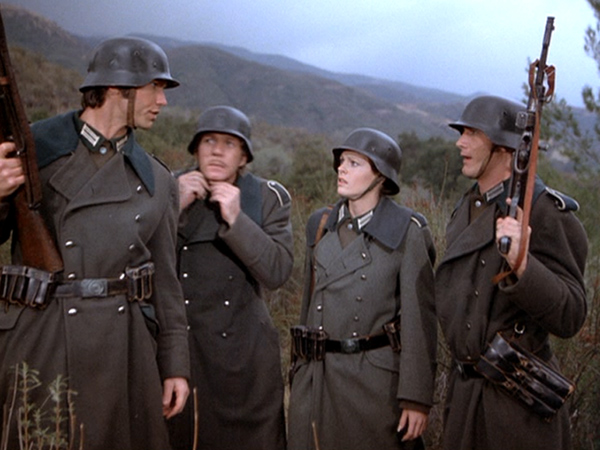Slightly surprising that they didn't do a remake of Man Out of Time. OK, as a Logan's Run episode it was only about three years old, but when did that matter?
ISTR someone mentioned David Gerrold being on staff for the version that didn't happen, so maybe that would have been an issue.
The only way they could "do a remake" of that episode would be if David Gerrold had sold them a rewritten version of his script. As you say, he didn't end up working on Buck Rogers after all. And the two shows had no producers in common and were from different production companies and networks (Logan was MGM and CBS, Buck was Universal and NBC), so I don't know why you find it surprising.
This confuses me, if he didn't want to do a show with sci-fi plots, then why do a sci-fi show at all? Wouldn't it have made more sense for him to just do a cop show, or spy show or something then? Did someone force him to do Buck Rogers?
Well, to borrow terminology from an online acquaintance who's a film scholar, there's a difference between the semantics of science fiction (the surface elements and concepts used) and the syntax (the way the story is structured). There are lots of things that combine the semantics of SF with the syntax of other genres -- for instance, Star Wars combines it with the syntax of fantasy, Outland with the syntax of Westerns, etc. Lost in Space was The Swiss Family Robinson dressed up with sci-fi semantics. Battle Beyond the Stars was The Magnificent Seven transposed to sci-fi. A lot of the things that are considered sci-fi in mass media only use the surface trappings of SF or space opera to tell more conventional stories. What defines a more classic science fiction story -- to use the standard in Analog Magazine's writers' guidelines -- is that it could not be told without the speculative element. You couldn't tell "The City on the Edge of Forever" without time travel, or "Tuvix" without transporters.
So Lansbury's thinking, presumably, was that the syntax-level science fiction of shows like Star Trek was too rarefied for a general TV audience that just wanted standard action-adventure comfort food, so the way to make a space/futuristic show popular was just to use the semantics, the surface elements of spaceships and robots and aliens and ray guns and mutants and superpowers, but with the syntax of regular action-adventure.
And it wasn't even just about science fiction. Season 1 Buck Rogers episodes almost never had any kind of theme or message, any underlying point to the story beyond "Hope you had a good time and come back next week." There weren't any challenging ethical questions or philosophical dilemmas. I think the closest they came to a message was in "Buck's Duel to the Death" when Buck had been mythologized as an oppressed people's hero and gave them a speech saying they had to work it out for themselves.



